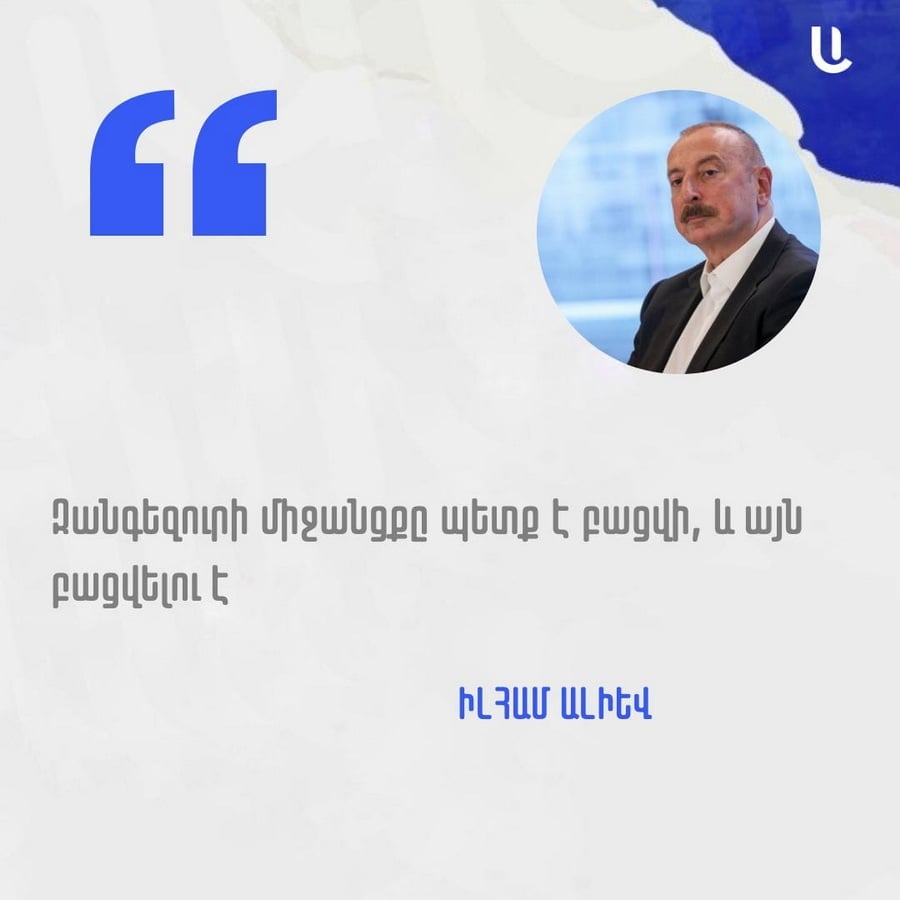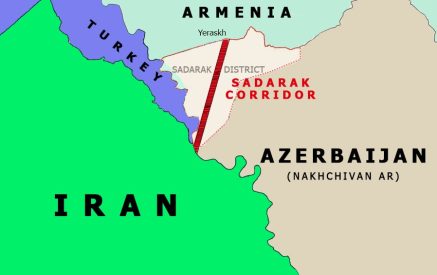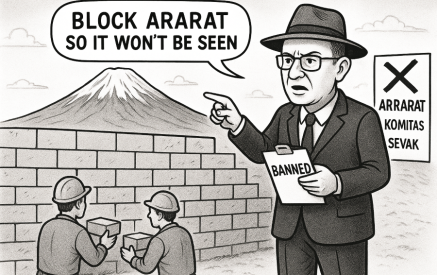In 2023, when Azerbaijan closed the only road connecting Artsakh to Armenia—the Berdzor Corridor—and blockaded approximately 130,000 ethnic Armenians, Armenian officials claimed they refrained from intervening to prevent Azerbaijan from demanding a “Zangezur Corridor” through Armenia. Members of the ruling Civil Contract party and National Assembly Speaker Alen Simonyan repeatedly made such statements in interviews.
Specifically, in early 2023, Alen Simonyan stated that Armenia would not engage in negotiations with Azerbaijan regarding the opening of the Lachin Corridor. When asked why Armenia was not negotiating with Azerbaijan on this matter, Simonyan responded that Azerbaijan’s goal was to draw Armenia into this discussion to pressure it into allowing such a corridor through Armenian territory. He later reiterated this position.
Various Armenian analysts echoed this stance, justifying the ruling party’s position. Political scientist Benyamin Poghosyan, in an interview, remarked: “As I understand it, Azerbaijan is telling Armenia: either the road from Azerbaijan to Nakhijevan through Syunik will not have Armenian border and passport control, or agree that there will be Azerbaijani border guards and customs officers in the Lachin Corridor. These are the options presented to Armenia. If neither is accepted, then expect renewed military escalation, casualties, and we will force you.”
Following the closure of the Lachin Corridor, the people of Artsakh remained blockaded for nearly a year. Then, on September 19, 2023, Azerbaijan launched a large-scale offensive against Artsakh. Due to Azerbaijan’s atrocities and genocidal actions, Artsakh was completely ethnically cleansed for the first time in history within a matter of days.
Read also
Although Armenian authorities’ actions facilitated the complete occupation of Artsakh by Azerbaijan and subjected its people to genocidal acts, Azerbaijan has not abandoned its territorial ambitions regarding Syunik and Armenia in general.
In the two years following the ethnic cleansing of Artsakh, Azerbaijani and Turkish officials have made various demands and statements regarding the so-called “Zangezur Corridor.” On August 8, 2025, a declaration signed in Washington established the “Trump Route for International Peace and Prosperity” in Armenia’s Syunik province. Azerbaijan and Turkey continue to refer to this route as the “Zangezur Corridor.” This route will ensure uninterrupted Azerbaijani access to Nakhijevan. Azerbaijan has demanded that no Armenian border guards be present on this route to avoid interaction with Azerbaijani personnel.
Recently, members of the National Assembly directly questioned Prime Minister Nikol Pashinyan about whether Armenian border guards would exercise control over the “Trump Route.” After reiterating statements about “jurisdiction and sovereignty,” Pashinyan responded that in many countries, border guards do not check the passports of individuals entering their country; instead, equipment does. He stated, “The method where you must touch a person, sniff them, pull their ears, pull their hair, to see if it’s real or not, should not and will not be at our borders.” This indicates that Pashinyan is preparing the Armenian public for compliance with Azerbaijan’s demand: no Armenian border guards will be present on the route to check Azerbaijani travelers.
Rosa HOVHANNISYAN




























































